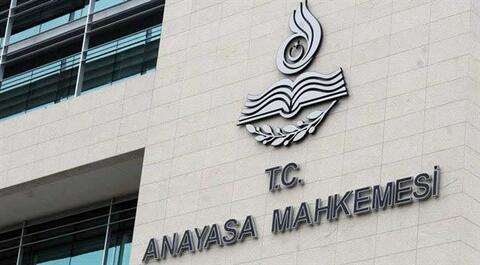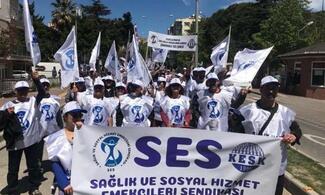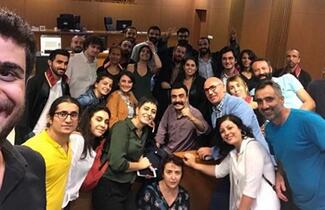
The Constitutional Court announced its detailed ruling on 19 union members today (July 21) and has concluded that the penalization of unionists over their participation in union activities and meetings is a right violation.
In concluding the application of 19 people, who were then the members or executives of the Confederation of Public Employees Trade Unions (KESK) and some unions affiliated with it, the Constitutional Court has noted that the local court did not present sufficient evidence to convict them:
"The court of first-instance failed to convincingly prove that the activities in the related conference, which was accepted by the court as the main evidence for the offense of membership of a terrorist organization, confirmed or concluded that the applicants knowingly and willingly joined the hierarchical structure of the PKK terrorist organization*."
As part of an investigation conducted in Turkey's Aegean province of İzmir, 19 union members and executives were detained on May 29, 2009 and some of them were arrested pending trial. The İzmir 8th Heavy Penal Court then ruled by a majority of votes that they should be convicted of "membership of the PKK terrorist organization."
'Pieces of evidence not evaluated one by one'
In its detailed ruling, the Constitution Court has concluded that the evidence was not properly evaluated by the court of first instance.
The Court has underlined that the local court "examined the evidence suggesting the applicants' involvement in the hierarchical structure of the terrorist organization together, thereby failing to separately evaluate every piece of evidence falling within the scope of fundamental rights by considering the terrorist organization's aim, nature, familiarity, type and intensity of violence or other conditions of the concrete case."
'Activities within the scope of fundamental rights'
The detailed ruling of the Court has also underlined that union activities fall within the scope of fundamental rights and the applicants' alleged links with the organization could not be proven by the local court.
According to the supreme court, as a result of this failure, the court of first instance "created an unjust chilling effect on the right to assembly and demonstration." "Within this context, the court failed to present relevant and adequate evidence suggesting that the use of related activities of the applicants as evidence for their conviction met a pressing social need," the Constitutional Court has indicated further.
Accordingly, the Court has concluded that the interference in the applicants' right to assembly and demonstration does not comply with the requirements of a democratic societal order and ruled that the file of the case shall be returned to the İzmir 12th Heavy Penal Court for retrial so that the consequences of the violation can be eliminated.



